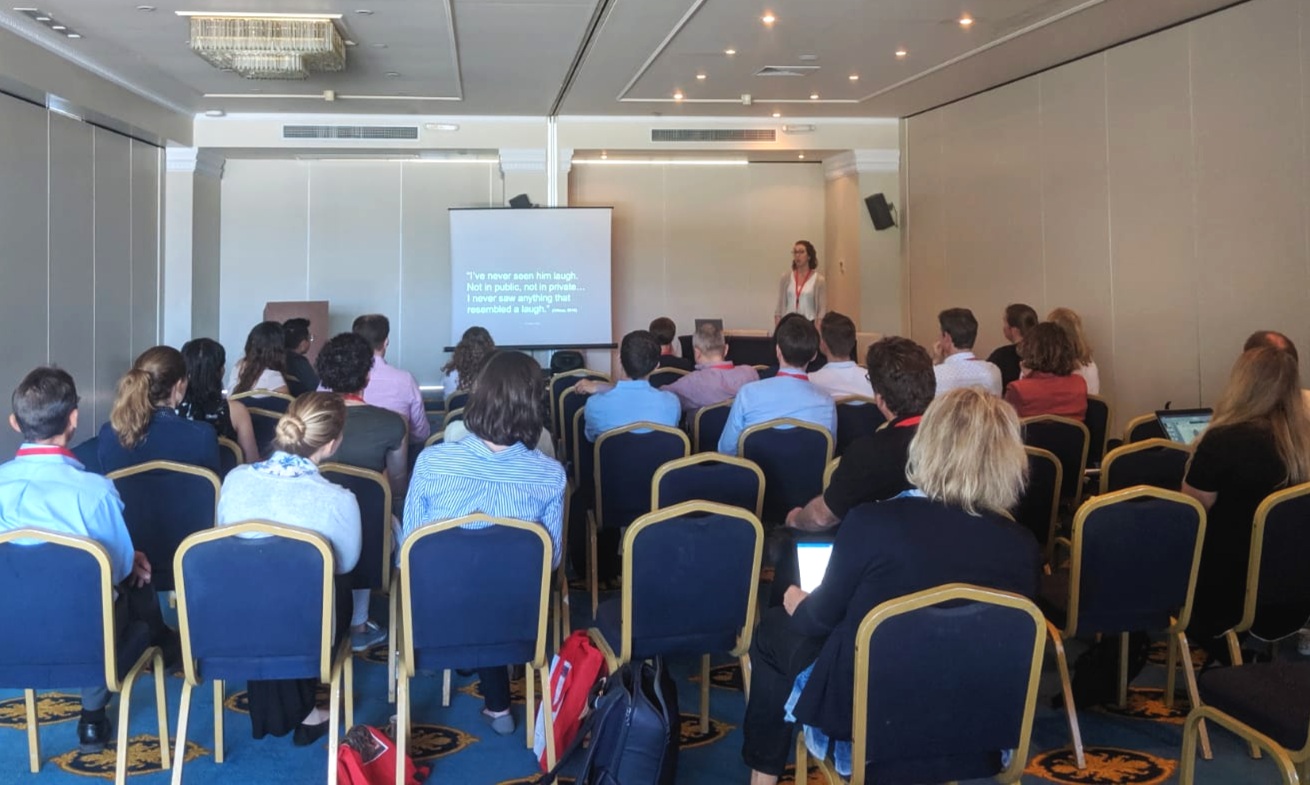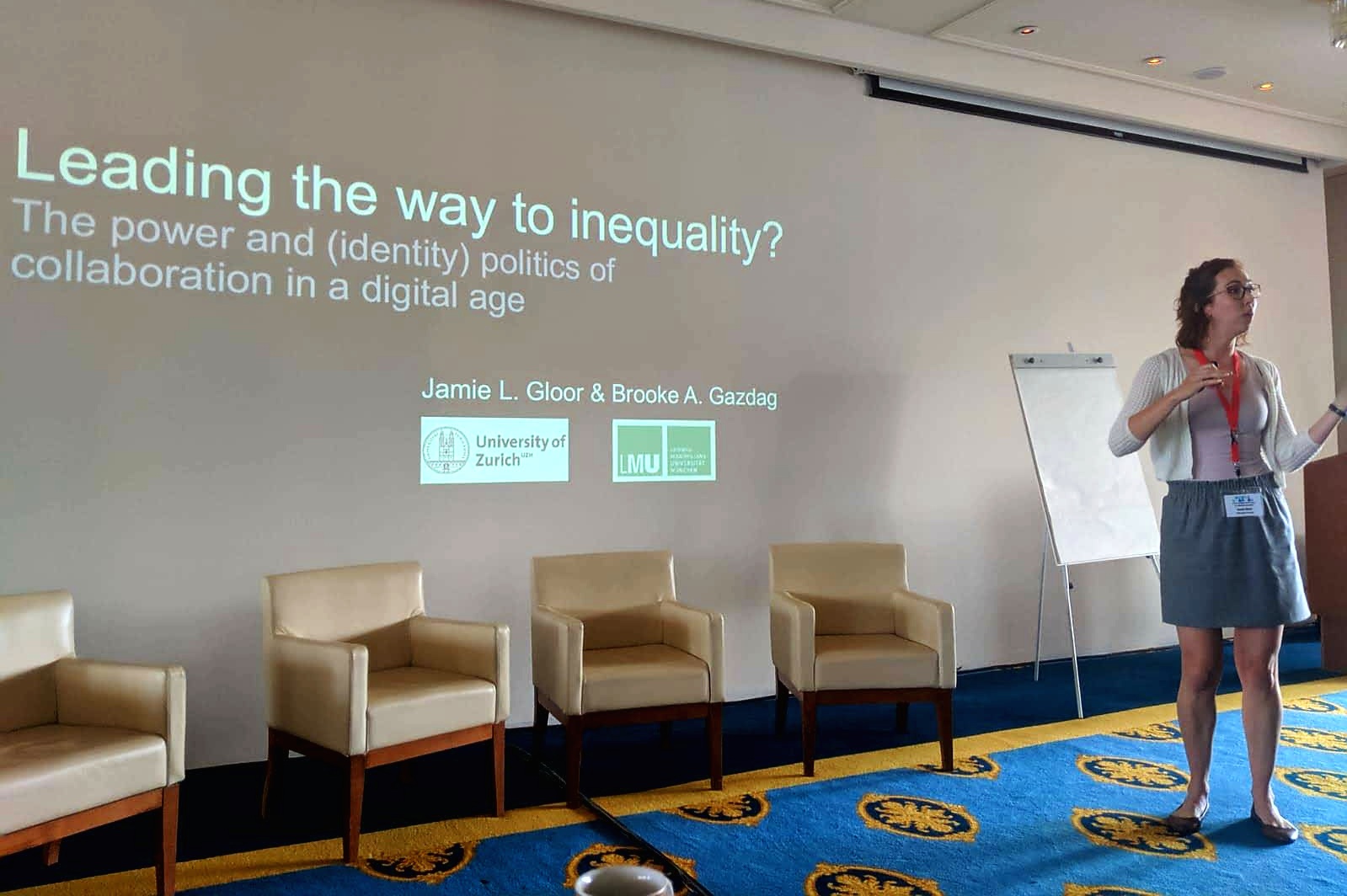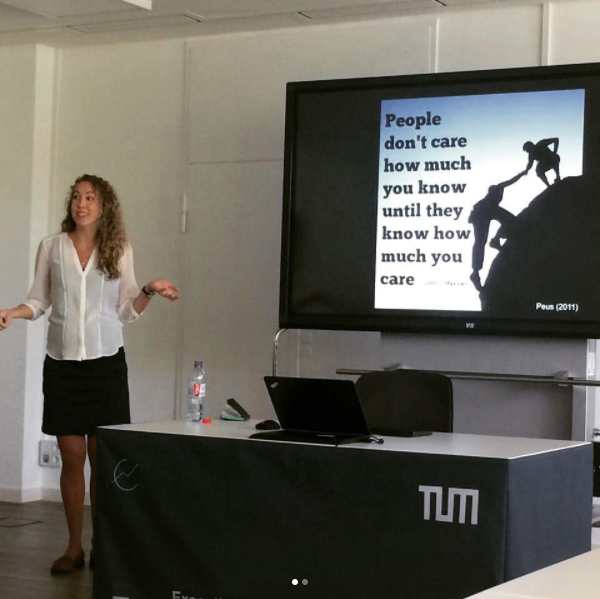JOIN US! ***...in fall 2020. Conference postponed due to coronavirus!***
Jamie Gloor
For the most up-to-date information on speakers, time tables, and conference submissions, see *HERE*.
For comments, questions, and inquiries, use the form on the right.
14 Plattenstrasse
Kreis 7, ZH, 8032
Switzerland
Jamie L Gloor is an experienced, international researcher, educator and mentor. She is American born but currently resides in Zurich, Switzerland. Her research interests focus on individual and organizational health, including publications on diversity and leadership and research experience at prestigious universities across four different continents.
Exciting news, research, updates, & events!
Filtering by Tag: leadership

For the most up-to-date information on speakers, time tables, and conference submissions, see *HERE*.
Had the honor of presenting "Can funny people get ahead?" at Goldman Sachs in Zurich (with a virtual connection to the Geneva office) last week. Welcomed a big (standing room only in the back!), bright group with great questions about leveraging workplace humor for effective teamwork and leadership.

We were delighted to welcome comedian and medical doctor, Fabian Unteregger, as a guest lecturer for our business administration master seminar, “No funny business? Leadership soft skills for a digital, dispersed, and diverse age” at the University of Zurich.
After I presented an overview of the current science on behavioral humor, Fabian presented tips and tricks of successful humor use in professional settings. By the way, he also scored a 4/4 (100%) on our pop quiz that day, showing that my students aren’t the only ones who are soft skills experts!

What a fun (and funny) way to learn about leadership soft skills with this scholar-comedian combo.
What a delight it was to catch-up with so many colleagues (e.g., my former TU Munich team members, pictured below) at the Interdisciplinary Perspectives on Leadership Symposium in Corfu, Greece. As usual, Olga Epitropaki (Durham University) and Sophia Tzagaraki did a great job organizing. I also enjoyed the keynote by one of my Swiss colleagues, Christian Zehnder (University of Lausanne).

It was invigorating to present some new ideas we’re really excited about and to experience the impressive collective brain in the room for our papers on leadership, power, and humor (with Petra Schmid, ETH Zurich, and Sam Yam, NUS) and coauthor networks (with Brooke Gazdag).


I am grateful to the SAGW, who funded part of my conference travel.
Delighted to share that Prof. Brooke Gazdag (LMU) and my new big data research on digital inequality and collaboration in science has been accepted for presentation at the inaugural the ETH-organized conference on organizing in the digital era in Switzerland. *UPDATE* Due to a time conflict that arose after acceptance, however, we unfortunately had to withdraw our paper and miss out on this amazing conference.

Our symposium on humor (with Prof. Rashpal Densa-Khalon, University of Surrey, co-organizer, and Prof. Cecily Cooper, University of Miami, discussant) that includes my paper on humor in uncertainty, as well as the symposium on gender bias in organizations (led by Prof. Samantha Paustian-Underdahl, Florida State University, and Dr. Kate Frear, Center for Creative Leadership) that includes our paper on identity and motivated reasoning (with Profs. Tyler Okimoto, University of Queensland, and Xinxin Li, Shanghai Jiao Tong University) have been accepted for presentation at the 79th annual Academy of Management Conference in Boston.

Looking forward to meeting colleagues, coauthors, and new contacts, starting, joining, and continuing discussions, and sharing science on a local and global scale.
I’m delighted to share that I just won a Lehrkredit teaching innovation grant to develop and lead a new course on soft skills for our future leaders at the University of Zurich.

Such a course is increasingly necessary in light of the rising rates of digital disruptions, computer-mediated-communication, and employee diversity, as soft skills like humor separate humans from robots and are critical for successfully interacting with people with diverse backgrounds and interests. This interdisciplinary course will blend science and practice with an all-star line-up of guest lecturers (e.g., Swiss comedian Fabian Unteregger).

Master's students will get the first chance to participate in this course in Fall 2019, after which it will be offered once more for master’s students (in Spring 2020) and again for PhD students (in Fall 2020).

In this position, you will conceptualize, implement, and conduct innovative, multimethod studies (e.g., field surveys, lab and behavioral experiments, panel data) to investigate the effects of leaders’ behaviors on employee health, well-being, and performance, as well as exploring new forms of modern leadership (e.g., leadership duos, shared and part-time models) and how technology can facilitate diversity and leadership. You will have the opportunity to program and optimize experiments, analyze data, present findings at national and international conferences, and write scientific manuscripts. We are looking for someone who is comfortable presenting ideas to both scientific and non-scientific audiences and open to teach students, researchers, and/or executives.
We offer an experienced, international supervision team combining award-winning expertise in leadership research with business economics and psychology (Prof. Dr. Claudia Peus, Dr. Jamie Gloor). You will work in a collaborative environment in a truly interdisciplinary team that fosters an open-minded, participative, and friendly work atmosphere. Finally, we will facilitate your scientific creativity and independence, while supporting your scientific development, career goals, and professional network.
If this interests you and if you have relevant qualifications, review our job ad. If you know someone who could be interested feel free to share the job ad with them. We also have 3 other open positions on leadership + social neuroscience or leadership + educational technologies, which you can find here.

Fresh off the presses in Journal of Business Ethics:
Female leaders continue to face bias in the workplace compared to male leaders. When employees are evaluated differently because of who they are rather than how they perform, an ethical dilemma arises for leaders and organizations. Thus, bridging role congruity and social identity leadership theories, we propose that gender biases in leadership evaluations can be overcome by manipulating diversity at the team level. Across two multiple-source, multiple-wave, and randomized field experiments, we test whether team gender composition restores gender equity in leadership evaluations. In Study 1, we find that male leaders are rated as more prototypical in male-dominated groups, an advantage that is eliminated in gender-balanced groups. In Study 2, we replicate and extend this finding by showing that leader gender and team gender composition interact to predict trust in the leader via perceptions of leader prototypicality. The results show causal support for the social identity model of organizational leadership and a boundary condition of role congruity theory. Beyond moral arguments of fairness, our findings also show how, in the case of gender, team diversity can create a more level playing field for leaders. Finally, we outline the implications of our results for leaders, organizations, business ethics, and society.

This paper was part of my dissertation, coauthored with fantastic people: Manuela Morf (Erasmus University), Samantha Paustian-Underdahl (Florida State University), and Uschi Backes-Gellner (University of Zurich).

We welcomed a great group for our "New Forms of Leadership" conference at TUM School of Management Executive Education on Friday, November 10, in Munich. Main themes included part-time and shared leadership models, leader's flexible accommodations (e.g., flex-place and -time) and family leaves, how digitization facilitates these new leadership and work models, and if such models are especially important for Generation Y (i.e., Millennials) or female employees.
Thanks again to our talented organizers, energizing speakers and science slammers, and engaged attendees from practice and research.

My science slam presentation of first results from our ForGenderCare Project, "Leaders who care," is here.
Last week, Jamie presented an empirical paper at the 50th European Association for Social Psychology in Granada, Spain titled, Caring leaders: The impact of parental leave on the perception of transformational leadership. Coauthored with Dr. Lisa Horvath, Professors Susanne Braun and Claudia Peus (abstract/more info here), this paper provides fresh, first results from the ForGenderCare project and was part of a stellar symposium titled, Barriers to achieving gender equality: Shortcomings of placing the burden on women with top gender, diversity, and leadership scholars (more info here).

EASP hosted ~1,200 scholars and practitioners from across Europe, the United States, Australia and beyond from disciplines such as social, developmental, and work psychology, management and organizational behavior. Jamie and her paper received a warm welcome with a room full of attendees and average temperatures that reached 30+ degrees...



Just a few weeks prior, Jamie also presented the paper at the Executive Education Center of the Technical University of Munich as part of the Munich Leadership Colloquium, where she received encouraging and formative feedback.